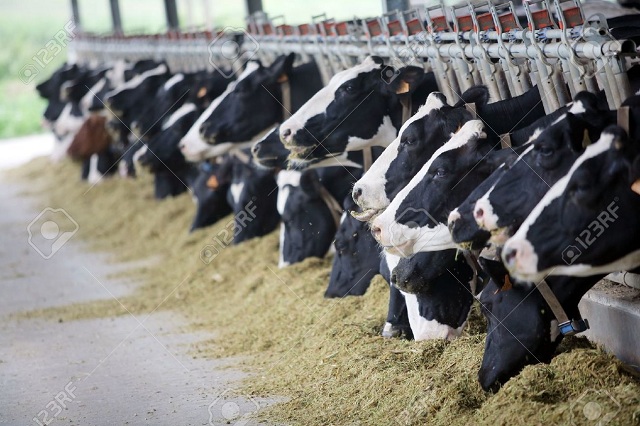
The Sunday News


ONE of the key aspects of good animal husbandry practice is animal health management.
This is one aspect that most smallholder farmers take lightly and attend to half-heartedly yet it should be logical that a healthy herd is a productive one.
This aspect of herd management should not be delegated if possible or at least delegated to a trained and experienced stockman.
Herd health management should be a culture which is inculcated to the farmer.
It should be a routine aspect of livestock management. Herd health management is broader and bigger than simply buying a bottle of an antibiotic and a syringe.
A farmer should understand the diseases that are prevalent and endemic in his area so that they can institute appropriate action.
While there are a whole range of livestock diseases, not all are found in every corner of the country as some tend to be more prevalent in some areas than others.
Also farmers need to know that animal health management is not treatment but prevention. This means as a farmer you have to observe certain management principles that will prevent or minimise your animals from being affected by diseases.
We all know that there is a whole range of diseases that can afflict animals because of being infested by ticks.
These are called tick borne diseases and there is a wide range of them. It then boggles the mind to see a farmer with a 50 herd of cattle solely depending on Government managed dip tanks.
If for one reason or the other, Government is unable to supply the acaricide there will not be dipping for several weeks and the farmer just waits and grumbles.
I think it is grossly irresponsible for the farmer to wait entirely for the Government to provide a service which you could easily arrange for yourself by buying a $16 knapsack sprayer and $9 dipping chemical and spray your herd.
Another important aspect of herd health management is vaccinating against diseases. This is a practice that many smallholder farmers do not follow. Some livestock disease are better managed through vaccinating against the disease, for example, quarter evil or lumpy skin disease.
The only time you hear of smallholder farmers vaccinating is when Government is carrying out its vaccination programmes against such diseases as FMD.
As a farmer it is important to approach your local veterinary officer to get technical advice in terms of which diseases you can vaccinate against in your area.
Deworming your herd is another practice that most farmers take lightly. It is either they decide to dose their animals when they see that there is a problem. Which means they approach dosing as a treatment procedure when it should be practised as preventative procedure. In other words you should deworm your animals as a matter of routine management practice not as a way of treating an animal which is now showing signs of internal parasites.
Farmers also have this tendency of usually grabbing this cheaper dosing chemical without even looking at the range of parasites that it controls. It is wise to use a broad spectrum dosing remedy even if it cost more because it will control a number of parasites affecting your animals. Just last week I met a farmer in Nkayi with about 45 head of thin animals in a season like this where there is plenty of grass and yes, he had dosed his herd and there is no prize for guessing which dosing remedy he used.
Again farmers should dose according to instruction on the label not just to tell the boys to give all the animals 15ml. The quantity of the remedy to give to an animal is related to the weight of that animal and that needs to be respected.
In the event of a visibly sick animal I always advice farmers to act swiftly and seek help or provide treatment if you have the means. If you see an animal showing signs of being ill it probably has been sick for at least two days so there is no need for you to add another day of observing it. Just take action immediately before it is too late. It is also standard practice to separate the sick animal from the rest of the herd so that you can easily observe it and also prevent the spread of the disease to the whole herd. Treating an animal early does not only increase chances of serving your animals but also it can prevent such things as abortion.
It is important to note that any disease that causes high fever in animals can result in abortion for in calf cows. Diseases like leptospirosis can cause your pregnant cows to abort due to high fever that is caused by the disease.
Lastly, as part of animal health management a farmer should always have in his/her medicines drawer some broad spectrum antibiotic and oxytetracyclines so as to be able to respond immediately when there is a sick animal. You cannot start running borrowing drugs from neighbours and even expired drugs because you now have a sick animal in your herd. That is not proper management. Uyabonga umntakaMaKhumalo.
Feedback [email protected] cell 0772851275.



